#charles spaak
Explore tagged Tumblr posts
Text
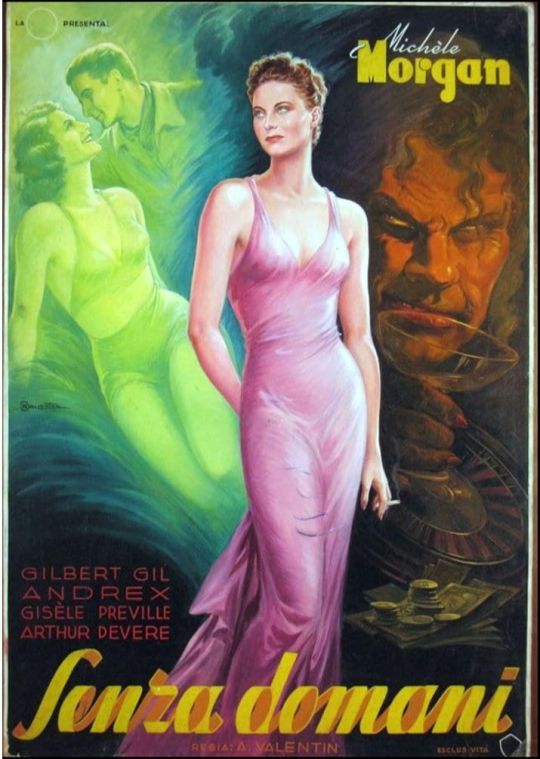
Please keep the tags in reposting links. Thanks.
#Michèle Morgan#Frehel#Albert Valentin#nightclub#hostess#Senza Domani#Nightclub Hostess#L'Entraîneuse#Les Films Raoul Ploquin#Universum Film#UFA#L'Alliance Cinématographique Européenne#ACE#cinema#poster#Charles Spaak#Raoul Ploquin#Günther Rittau#Georges Van Parys#Gilbert Gil#Andrex#Gisèle Préville#Arthur Devère#Georges Lannes#Catherine Fonteney#Jeanne Lion#René Génin#François Périer#Jimmy Gaillard#Monique Joyce
2 notes
·
View notes
Text
'Panique' – darkness in post-war France on Criterion Channel
Julien Duvivier, one of the godfathers of French poetic realism, announced his return home from his World War II Hollywood sojourn with the dark, savage French noir Panique (France, 1947). Based on the novel “Monsieur Hire’s Engagement” by the prolific George Simenon, Panique stars Michel Simon as the eccentric Hire, an aloof misanthrope eyed with suspicion by his gossipy neighbors. As he stalks…

View On WordPress
#1947#Blu-ray#Charles Spaak#Criterion Channel#DVD#France#George Simenon#Julien Duvivier#Michel Simon#Panique#Paul Bernard#Viviane Romance#VOD
2 notes
·
View notes
Text
THE LOWER DEPTHS (1936):
A charming poor thief
Falls for landlord’s abused niece
Baron out of luck
youtube
#the lower depths#random richards#poem#haiku#poetry#haiku poem#poets on tumblr#haiku poetry#haiku form#poetic#criterion collection#criterion channel#jean reno#jean gabin#Suzy prim#Louis jouvet#jany holt#Vladimir sokoloff#maxim gorky#Charles spaak#Yevgeni Zamyatin#Jacques Companeez#Youtube
0 notes
Text
Les frontières, c’est une invention des hommes. La nature, elle s’en fout !
Le lieutenant Rosenthal (Marcel Dalio) dans La Grande Illusion (1937) de Jean Renoir, scénario et dialogues de Charles Spaak et Jean Renoir
#La Grande Illusion#citation#quote#french side of tumblr#marcel dalio#jean renoir#charles spaak#1937#paix
1 note
·
View note
Text
Two by Jacques Feyder

Cécile Guyon, Françoise Rosay, and Jean Forest in Gribiche (Jacques Feyder, 1926)
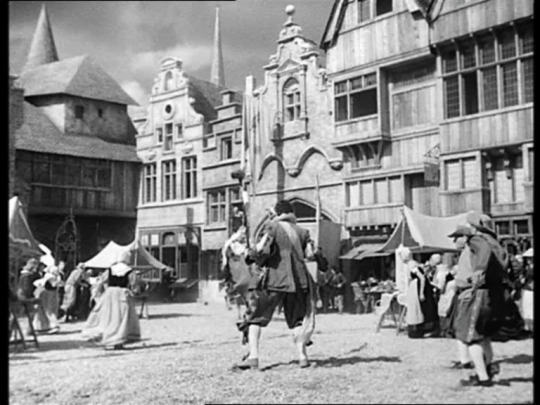
Carnival in Flanders (Jacques Feyder, 1935)
Belgian-born director Jacques Feyder established his career in France during the silent era, and went to work for MGM in Hollywood in 1929 to direct Greta Garbo in her last silent movie, The Kiss. But Hollywood was more interested in having him direct foreign-language versions of movies after talkies came in: Before dubbing became a common practice, films were often made in two versions, one in English for the American and British markets, others in various languages for overseas audiences. So Feyder was tasked with making a German-language version of Garbo's first talkie, Anna Christie (1931), though he also made two movies starring Ramon Novarro, Daybreak (1931) and Son of India (1931). Disillusionment with Hollywood sent him back to France, where he made his most famous film, Carnival in Flanders, in 1935. The rise of the Nazis, who banned that film after they invaded France in 1940, caused Feyder and his wife, Françoise Rosay, who starred in many of his movies, to move to Switzerland, where his career stalled and he died, only 62, in 1948. After the New Wave filmmakers began to dominate French film, Feyder's reputation began to wane: François Truffaut said of Carnival in Flanders that it represented a tendency to make everything "pleasant and perfect," As a result, David Thomson has said, "Feyder may be unfairly neglected today just as once he was injudiciously acclaimed."
Gribiche (Jacques Feyder, 1926)
Cast: Jean Forest, Rolla Norman, Françoise Rosay, Cécile Guyon, Alice Tissot. Screenplay: Jacques Feyder, based on a novel by Frédéric Boutet. Cinematography: Maurice Desfassiaux, Maurice Forster. Production design: Lazare Meerson.
The young actor Jean Forest had been discovered by Feyder and his wife, Françoise Rosay, and he starred in three films for the director, of which this was the last. It's a peculiar fable about charity. Forest plays Antoine Belot, nicknamed "Gribiche," who sees a rich woman, Edith Maranet (Rosay), drop her purse in a department store and returns it to her, spurning a reward. Edith is a do-gooder full of theories about "social hygiene." Impressed by the boy's honesty, Edith goes to his home, a small flat above some shops, where he lives with his widowed mother, Anna (Cécile Guyon), and proposes that she adopt Gribiche and educate him. Anna is reluctant to give up the boy, but Gribiche, knowing that Anna is being courted by Phillippe Gavary (Rolla Norman), and believing that he stands in the way of their marriage, agrees to the deal. When her rich friends ask about how she found Gribiche, Edith tells increasingly sentimental and self-serving stories -- dramatized by Feyder -- about the poverty in which she found him and his mother. But the boy is unhappy with the cold, sterile environment of Edith's mansion and the regimented approach to his education, and on Bastille Day, when the common folk of Paris are celebrating in what Edith regards as "unhygienic" ways, he finds his way back to his mother's home. Edith is furious, but eventually is persuaded to see reality and agrees to let him live with Anna and Phillippe, who have married, while she pays for his education. The whole thing is implausible, but the performances of Forest and Rosay, and especially the production design by Lazare Meerson, make it watchable and occasionally quite charming. Carnival in Flanders (Jacques Feyder, 1935)
Cast: Françoise Rosay, André Alerme, Jean Murat, Louis Jouvet, Micheline Chierel, Lyne Clevers Bernard Lancret. Screenplay: Bernard Zimmer, Jacques Feyder, based on a story by Charles Spaak. Cinematography: Harry Stradling Sr. Production design: Lazare Meerson. Film editing: Jacques Brillouin. Music: Louis Beydts.
Feyder's best-known film is something of a feminist fable, a kind of inversion of Lysistrata, in which the women of Boom, a village in 17th century Flanders that is occupied by the Spanish save the town from the pillage and plunder that the men of the village expect. Françoise Rosay plays the wife of the burgomaster (André Alerme), who holes up in his house, pretending to have died. The other officials of the town likewise sequester themselves. But the merry wives of Boom decide to wine, dine, and otherwise entertain the occupying Spaniards. It's all quite saucily entertaining, though undercut by a tiresome subplot (suspiciously reminiscent of that in Shakespeare's own play about merry wives) involving the burgomaster's daughter (Micheline Chierel) and her love for the young painter Julien Brueghel (Bernard Lancret), of whom the burgomaster disapproves. Again, Rosay's performance is a standout, as is Lazare Meerson's design: The village, with its evocation of the paintings of the Flemish masters, was created in a Paris suburb, with meticulous attention to detail, including the men's unflattering period costumes, designed by Georges K. Benda. The cinematography is by the American Harry Stradling Sr., who built his reputation in Europe before returning to Hollywood.
3 notes
·
View notes
Text
17 aprile … ricordiamo …
17 aprile … ricordiamo … #semprevivineiricordi #nomidaricordare #personaggiimportanti #perfettamentechic
2022: Catherine Spaak, attrice, cantante e conduttrice televisiva belga naturalizzata italiana. Figlia dell’attrice Claudie Clèves e dello sceneggiatore Charles, e sorella dell’attrice e fotografa Agnès. Si è sposata con l’attore Fabrizio Capucci, da cui ha avuto una figlia Sabrina, con Johnny Dorelli, da cui avrà un figlio Gabriele, con l’architetto Daniel Rey e infine con Vladimiro Tuselli.…
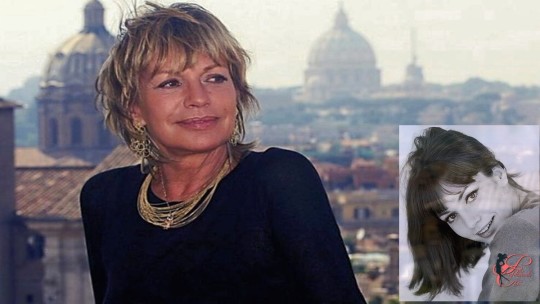
View On WordPress
#17 aprile#Barbara Bush#Barbara Pierce Bush#Catherine Spaak#Doris May Green#Doris Roberts#Edna Mae Durbin#Gilles Remiche#Hollis Resnik#Lady McCartney#Lillian Lorraine#Linda Louise Eastman#Linda Louise McCartney#Linda McCartney#Michael Sarrazin#Oleg Cassini#Oleg Cassini Loiewski#Ricordiamo#Sergio Fantoni#Toni Frissell
0 notes
Video
youtube
Nous sommes tous des assassins (1952) Bande Annonce VF [HD]
Un soldato, ottuso e ignorante, sopravvissuto alla seconda guerra mondiale, continua a uccidere una volta finita la guerra. Quando provoca la morte di una guardia, viene condannato alla ghigliottina. Il suo difensore farà emergere durante il processo le responsabilità sociali dei suoi comportamenti devianti.
Note Cayatte, giornalista e avvocato, al 13° film affronta il suo tema prediletto: il film è un appassionata requisitoria contro la pena di morte. Alle volte un po' didascalico, ma nel complesso un'opera avvincente. Scritto dal regista con Charles Spaak. Premio speciale della giuria a Cannes.
Siamo tutti assassini (Nous sommes tous des assassins) è un film del 1952 diretto da André Cayatte, vincitore del Premio Speciale della Giuria al 5º Festival di Cannes.[1
Titolo originale Nous sommes tous des assassins Paese di produzione Francia, Italia Anno 1952 Durata 115 min Dati tecnici B/N Genere drammatico Regia André Cayatte Soggetto André Cayatte, Charles Spaak Sceneggiatura André Cayatte, Charles Spaak Fotografia Jean Bourgoin Montaggio Paul Cayatte Musiche Raymond Legrand Scenografia Jacques Colombier Interpreti e personaggi Marcel Mouloudji: René Le Guen Raymond Pellegrin: Gino Bollini Claude Laydu: Philippe Arnaud Louis Seigner: abate Roussard Georges Poujouly: Michel Le Guen Louis Arbessier: avvocato del tribunale dei minori René Blancard: Albert Pichon Amedeo Nazzari: dottor Detouche (versione italiana) Jean-Pierre Grenier: dottor Detouche (versione francese) Yvonne Sanson: Yvonne Le Guen (versione italiana) Jacqueline Pierreux: Yvonne Le Guen (versione francese) Antoine Balpêtré: dottor Albert Dutoit Léonce Corne: capitano Girard Henri Crémieux: avvocato di Bauchet Jean Daurand: Girard, l'uomo della cabina telefonica Yvonne de Bray: prima cenciaiola Lise Berthier: seconda cenciaiola Guy Decomble: un ispettore Monette Dinay: la ragazza di Charles Julien Verdier: Bauchet Yvette Etiévant: moglie di Bauchet Juliette Faber: Francine Saulnier Paul Faivre: Biribi Anouk Ferjac: Agnès Paul Frankeur: Léon, capo delle guardie Renée Gardès: madre di Le Guen Jérôme Goulven: Noblet Elisabeth Hardy: madre della bambina François Joux: Saulnier Alinda Kristensen: donna svedese Charles Lemontier: procuratore Roland Lesaffre: detenuto barbiere Liliane Maigné: Rachele Daniel Mendaille: carceriere capo Eliane Monceau: amica di Dutoit Jacques Morel: Charles Jean-Paul Moulinot: direttore della Santé Lucien Nat: avvocato dell'accusa Line Noro: Louise Arnaud, madre di Philippe Marcel Pérès: Malingré André Reybaz: padre Simon Alexandre Rignault: gendarme Solange Sicard: madre di Agnès Sylvie: Laetitia Bollini, madre di Gino Georges Tabet: la pianista Jean-Marc Tennberg: Fredo André Valmy: il piccolo Louis François Vibert: madre di Mousset Henri Vilbert: signor Arnaud
0 notes
Text
AUTOMNE STUDIEUX AVEC METAHODOS - CHARLES PÉPIN : « MODIFIER LE PASSÉ POUR AVANCER »
ENTRETIEN «Il ne s’agit plus de “faire avec” le passé, mais d’accepter de le modifier pour avancer» Par Isabelle Spaak Publié le 04/09/2023 FIGARO MADAME Dans son livre Vivre avec son passé, le philosophe s’appuie sur de nouvelles thérapies pour alléger l’existence et s’en accommoder. Un appartement traversant dans le quartier du Marais, à Paris. Lumière dorée du matin côté cour. Livres…

View On WordPress
0 notes
Text
RT @ARTEpro: 🎞 Une pépite #cinéma sur @ARTEfr le 24.04: "Remorques" de Jean Grémillon, sur un scénario de Jacques Prévert, André Cayatte, Charles Spaak, Roger Vercel. Tourné en pleine guerre, un somptueux mélodrame avec Michèle Morgan, Madeleine Renaud et Jean Gabin. https://t.co/scaj3rhbpA https://t.co/DY2tC0br1B
RT @ARTEpro: 🎞 Une pépite #cinéma sur @ARTEfr le 24.04: "Remorques" de Jean Grémillon, sur un scénario de Jacques Prévert, André Cayatte, Charles Spaak, Roger Vercel. Tourné en pleine guerre, un somptueux mélodrame avec Michèle Morgan, Madeleine Renaud et Jean Gabin. https://t.co/scaj3rhbpA https://t.co/DY2tC0br1B
— Cinémannonce (@cinema_cinemas) Apr 13, 2023
via Twitter https://twitter.com/cinema_cinemas April 13, 2023 at 07:38AM https://twitter.com/cinema_cinemas/status/1646387390334763008
0 notes
Text
Catherine Spaak
https://www.unadonnalgiorno.it/catherine-spaak/

Catherine Spaak è stata un’attrice e una nota conduttrice televisiva.
Nacque in Francia, a Boulogne-Billancurt, il 3 aprile 1945, da una famiglia belga. Sua madre era l’attrice Claudie Clèves e il padre, Charles Spaak, uno sceneggiatore cinematografico.
Il suo debutto nel cinema è avvenuto a quindici anni, nel film Dolci inganni di Alberto Lattuada, da quel momento scelse di vivere in Italia dove si è dipanata tutta la sua carriera artistica.
Nel corso degli anni ’60 e ’70 ha lavorato con i più importanti nomi del cinema italiano, è stata diretta da registi come Dino Risi, Luigi Comencini, Mario Monicelli, Pasquale Festa Campanile, Steno e altri ancora.
È stata una donna dai tanti talenti, ha recitato a teatro, è stata ballerina, cantante e collaborato con vari quotidiani e riviste, come Corriere della Sera, il Mattino di Napoli, Anna, Moda e TV Sorrisi e Canzoni.
Ha anche scritto cinque libri.
Il successo popolare è arrivato quando ha ideato e condotto il talk-show televisivo Harem, andato in onda per quindici anni sulle reti RAI. Molti altri sono stati i programmi che ha condotto con la sua grazia, eleganza e spiccata intelligenza.
Ha avuto una vita personale travagliata, a soli diciassette anni è rimasta incinta di quello che poi sarebbe diventato il suo primo marito, Fabrizio Capucci che, dopo una delle tante liti familiari, aveva deciso di lasciare scappando con la figlia Sabrina. Denunciata, venne arrestata al confine con la Francia e il tribunale decise di affidare la bambina ai nonni paterni con la motivazione che, essendo un’attrice, era una donna di indubbia moralità. Un rapporto che non è mai più riuscita a ricucire e il suo grande rammarico. È stata sposata altre tre volte e avuto un altro figlio, Gabriele, con l’attore Johnny Dorelli.
Anticonformista, talentuosa, arguta, duttile, elegante, sofisticata e curiosa, ha spaziato con leggerezza profonda nell’industria dello spettacolo.
Icona di stile, ha avuto il coraggio e subito le conseguenze di essere una donna libera.
Si è raccontata con generosità e senza remore, dicendo quello che altre non avevano il coraggio di dire, comprese le molestie subite da personaggi famosi, attori e registi, in un’epoca in cui questo genere di cose si taceva per continuare a lavorare o perché non si veniva credute.
In anni in cui si anelava alla libertà ma i tempi erano ancora acerbi, ha vissuto tra gli apprezzamenti e l’invidia, tra l’ammirazione e l’incomprensione.
È morta a Roma, il 17 aprile 2022, per le conseguenze di un ictus che l’aveva colpita l’estate precedente.
1 note
·
View note
Photo
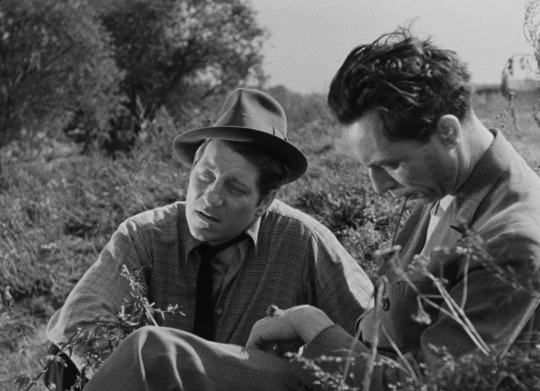
The Lower Depths (Les bas-fonds), Jean Renoir (1936)
#Jean Renoir#Charles Spaak#Jean Gabin#Suzy Prim#Louis Jouvet#Jany Holt#Vladimir Sokoloff#Robert Le Vigan#Camille Bert#René Génin#Fédote Bourgasoff#Jean Bachelet#Jean Wiener#Marguerite Renoir#1936
5 notes
·
View notes
Photo

Daïnah la métisse (Jean Grémillon, 1932)
45 notes
·
View notes
Text
PANIQUE - Julien Duvivier (1946)
PANIQUE – Julien Duvivier (1946)
À la fin des années 1930, Julien Duvivier est devenu l’un des cinéastes français les plus réputés. Notamment grâce à ses deux films avec Jean Gabin (Pépé le moko et La Belle équipe) et, Un carnet de bal, un de ses plus grands succès commerciaux. A l’aube de la Seconde Guerre mondiale, le cinéaste part aux Etats-Unis y continuer sa carrière en toute quiétude. Après y avoir réalisé un film The…
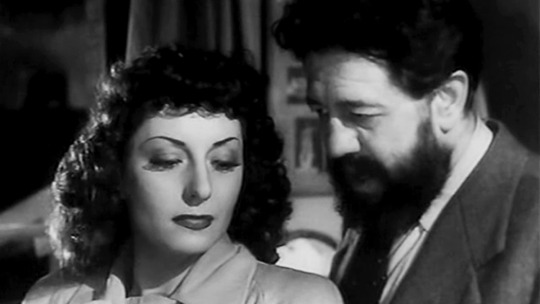
View On WordPress
0 notes
Photo
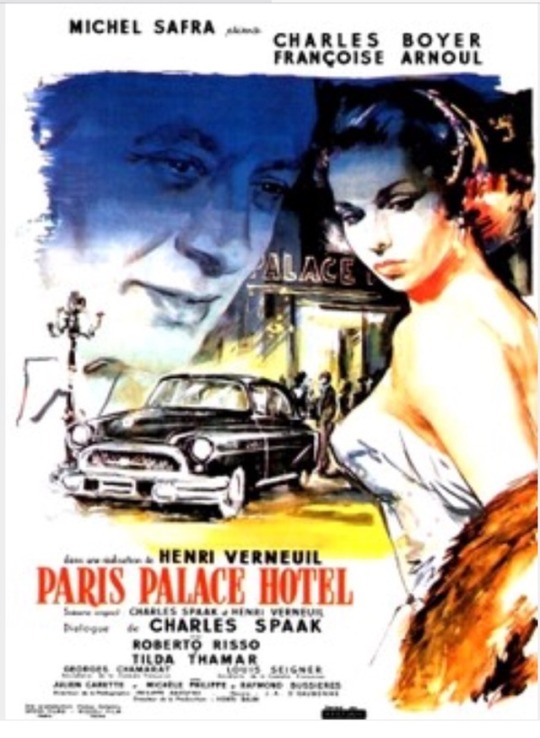
Adventures in Art. One of my favourite films
1 note
·
View note
Text





The Strange Monsieur Victor (Jean Grémillon, 1938)
Cast: Raimu, Pierre Blanchar, Madeleine Renaud, Marcelle Géniat, Andrex, Georges Flamant, Charles Blavette, Marcel Maupi, Charblay, Armand Larcher, Viviane Romance, Roger Peter, Daniel Kahya, Odette Roger, Édouard Delmont. Screenplay: Marcel Achard, Charles Spaak, Albert Valentin. Cinematography: Werner Krien. Music: Roland Manuel.
1 note
·
View note
Text
17 aprile … ricordiamo …
17 aprile … ricordiamo … #semprevivineiricordi #nomidaricordare #personaggiimportanti #perfettamentechic
2022: Catherine Spaak, attrice, cantante e conduttrice televisiva belga naturalizzata italiana. Figlia dell’attrice Claudie Clèves e dello sceneggiatore Charles, e sorella dell’attrice e fotografa Agnès. Si è sposata con l’attore Fabrizio Capucci, da cui ha avuto una figlia Sabrina, con Johnny Dorelli, da cui avrà un figlio Gabriele, con l’architetto Daniel Rey e infine con Vladimiro Tuselli.…

View On WordPress
#17 aprile#Barbara Bush#Barbara Pierce Bush#Catherine Spaak#Doris May Green#Doris Roberts#Edna Mae Durbin#Gilles Remiche#Hollis Resnik#Lady McCartney#Lillian Lorraine#Linda Louise Eastman#Linda Louise McCartney#Linda McCartney#Michael Sarrazin#Oleg Cassini#Oleg Cassini Loiewski#Ricordiamo#Sergio Fantoni#Toni Frissell
1 note
·
View note